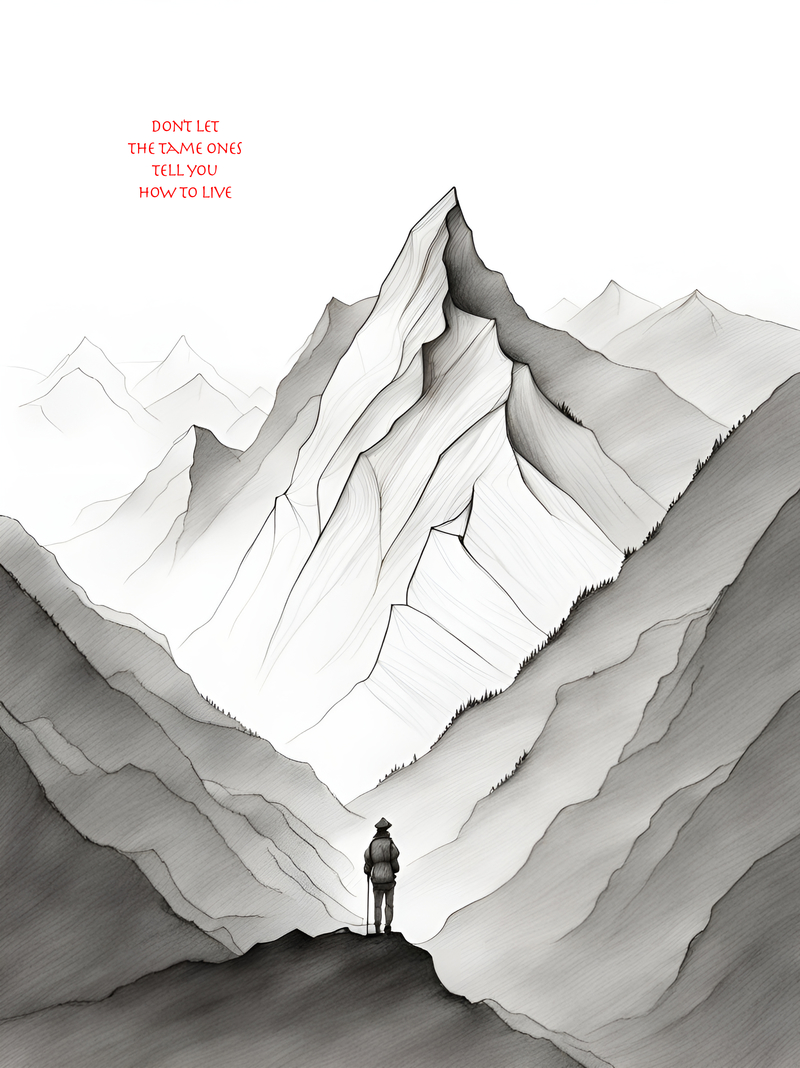Introduction: Fetch Me The Moon—A Short Zen Story
The Zen teacher’s dog loved his evening romp with his master. The dog would bound ahead to fetch a stick, then run back, wag his tail, and wait for the next game. On this particular evening, the teacher invited one of his brightest students to join him—a boy so intelligent that he became troubled by the contradictions in Buddhist doctrine.
“You must understand,” said the teacher, “that words are only guideposts. Never let the words or symbols get in the way of truth. Here, I’ll show you.”
With that the teacher called his happy dog.
“Fetch me the moon,” he said to his dog and pointed to the full moon.
“Where is my dog looking?” asked the teacher of the bright pupil.
“He’s looking at your finger.”
“Exactly. Don’t be like my dog. Don’t confuse the pointing finger with the thing that is being pointed at. All of our Buddhist words are only guideposts. Every man fights his way through other men’s words to find his own truth.”
NEW In The Shop: Don’t Let The Tame Ones Tell You How To Live [Poster]
Why We ♥ It: Some of the best advice I (Matt here) ever got was: don’t take life advice from people who aren’t living a life you want to live and don’t take criticism from people you wouldn’t go to for advice. I created this poster to act as a reminder to listen more closely to our role models and less closely to our critics, trolls, and tamed-comfort-zone-hugger acquaintances. It’s also a perfect gift for the outdoor adventurer, travel enthusiast, or solo explorer (or soon to be). Available in print or digital download. 👇🏼
...Want to advertise your book, product, or service? Send inquiries to matt@movemequotes.com.
Beyond the Quote (197/365)
Not only are Buddhist words guideposts, but all words are guideposts. Words communicated by a person are a reflection of what’s going on in their mind. It’s a reflection of their perspective; their personality; their life experiences; their biases; their values; their motives; their understanding of the world. Your perspective, personality, life experience, biases, values, motives, and understanding of the world can never be taken into consideration in full by another. How could it? It’s impossible. Let’s be real, you don’t even have a full grasp on it all yourself! And this always needs to be considered when somebody is speaking to you—they are merely putting up their guidepost interpretation of the world. Following it should always be considered and never blindly accepted.
It doesn’t matter who speaks the words—a parent, a grandparent, a teacher, a mentor, a celebrity, a president—everything should always be weighed against your own judgement and understanding of the world. For, the second we decide to accept everything that someone else says as truth and we stop listening to ourselves, we become brainwashed—nothing more than a puppet or a sheep. How could you argue against it? You accept everything that a person says as fact, as truth, as reality and you act on it accordingly—unquestioned and unchallenged. You are nothing but an extension of their mind. You are acting according to their brain. You are formulating your life around their interpretations.
Do you now see it? The minute anybody claims to have all of the answers, or tries to indoctrinate you, or expects you to accept their words without challenge is the minute you should immediately question every single thing they say. It is the most red of the red flags in communicational learning. In fact, it is the person who claims to know the least, who encourages the listener to question and challenge the most who should be, generally speaking, most trusted. This brings up a fantastic quote that many have attributed to Buddha, but, in fact has been sourced to be originally by Sayagyi U Ba Khin. He said:
“Do not believe in what you have heard; do not believe in traditions because they have been handed down for many generations; do not believe in anything because it is rumoured and spoken by many; do not believe merely because a written statement of some old sage is produced; do not believe in conjectures; do not believe in that as truth to which you have become attached from habit; do not believe merely the authority of your teachers and elders. After observation and analysis, when it agrees with reason and is conducive to the good and gain of one and all, then accept it and live up to it.”
NEW In The Shop: Don’t Let The Tame Ones Tell You How To Live [Poster]
Why We ♥ It: Some of the best advice I (Matt here) ever got was: don’t take life advice from people who aren’t living a life you want to live and don’t take criticism from people you wouldn’t go to for advice. I created this poster to act as a reminder to listen more closely to our role models and less closely to our critics, trolls, and tamed-comfort-zone-hugger acquaintances. It’s also a perfect gift for the outdoor adventurer, travel enthusiast, or solo explorer (or soon to be). Available in print or digital download. 👇🏼
...Want to advertise your book, product, or service? Send inquiries to matt@movemequotes.com.
This is what is meant by words being guideposts. If you look at a guidepost that is put up by another and it points in the direction of being for “good” and for the “gain” of one and all, and it is in agreement with your understanding and interpretation of the world then, of course, follow it! But, if it appears to be pointing in a direction that’s in contradiction to one of your personal beliefs or feels wrong/ sketchy/ uncomfortable/ incorrect—then challenge it!
And one of the hardest times to do this is when it goes against the crowd. Even if it feels like everybody is following a guidepost unquestionably, be the one who still questions it. Even if your best friends follow a path without challenge, be the one who still challenges it. Even if your own mother tells you to go in a certain direction in life, weigh her opinion against your own. In this way, you can ensure that you are living your best life, according to your own terms, and as a result of your own decisions. There’s nothing worse than pausing on your journey and looking back only to realize you’ve gone the wrong way, have done “bad” things, or have caused pain to one or many simply because you followed guideposts unquestionably. Own your path. Own your words. Own your life.
If you enjoyed the above story, then you might enjoy reading Osho’s book in full—The Book of Understanding. It comes highly recommended.
Book Overview: The path to freedom is filled with questions and uncertainty. Is it possible to truly know who we are? Do our lives have a purpose, or are we just accidental? What are we meant to contribute? What are we meant to become, to create, and to share? In The Book of Understanding, Osho, one of the most provocative thinkers of our time, challenges us to understand our world and ourselves in a new and radical way. In this groundbreaking work, Osho identifies, loosens, and ultimately helps to untie the knots of fear and misunderstanding that restrict us—leaving us free to discover and create our own individual path to freedom.
Buy from Amazon! Not on Audible…
Not enough time to read entire books? Check out Blinkist and get the key insights from popular nonfiction books in a fraction of the time. ‘Busy’ isn’t an excuse.
NEW In The Shop: Don’t Let The Tame Ones Tell You How To Live [Poster]
Why We ♥ It: Some of the best advice I (Matt here) ever got was: don’t take life advice from people who aren’t living a life you want to live and don’t take criticism from people you wouldn’t go to for advice. I created this poster to act as a reminder to listen more closely to our role models and less closely to our critics, trolls, and tamed-comfort-zone-hugger acquaintances. It’s also a perfect gift for the outdoor adventurer, travel enthusiast, or solo explorer (or soon to be). Available in print or digital download. 👇🏼
...Want to advertise your book, product, or service? Send inquiries to matt@movemequotes.com.

Written by Matt Hogan
Founder of MoveMe Quotes. On a mission to help busy people do inner work—for better mental health; for healing; for personal growth. Find me on Twitter / IG / Medium. I also share daily insights here. 🌱
It has taken me 1,000’s of hours to build this free library for you. If it has helped you, you can support my continued effort here. ☕️

